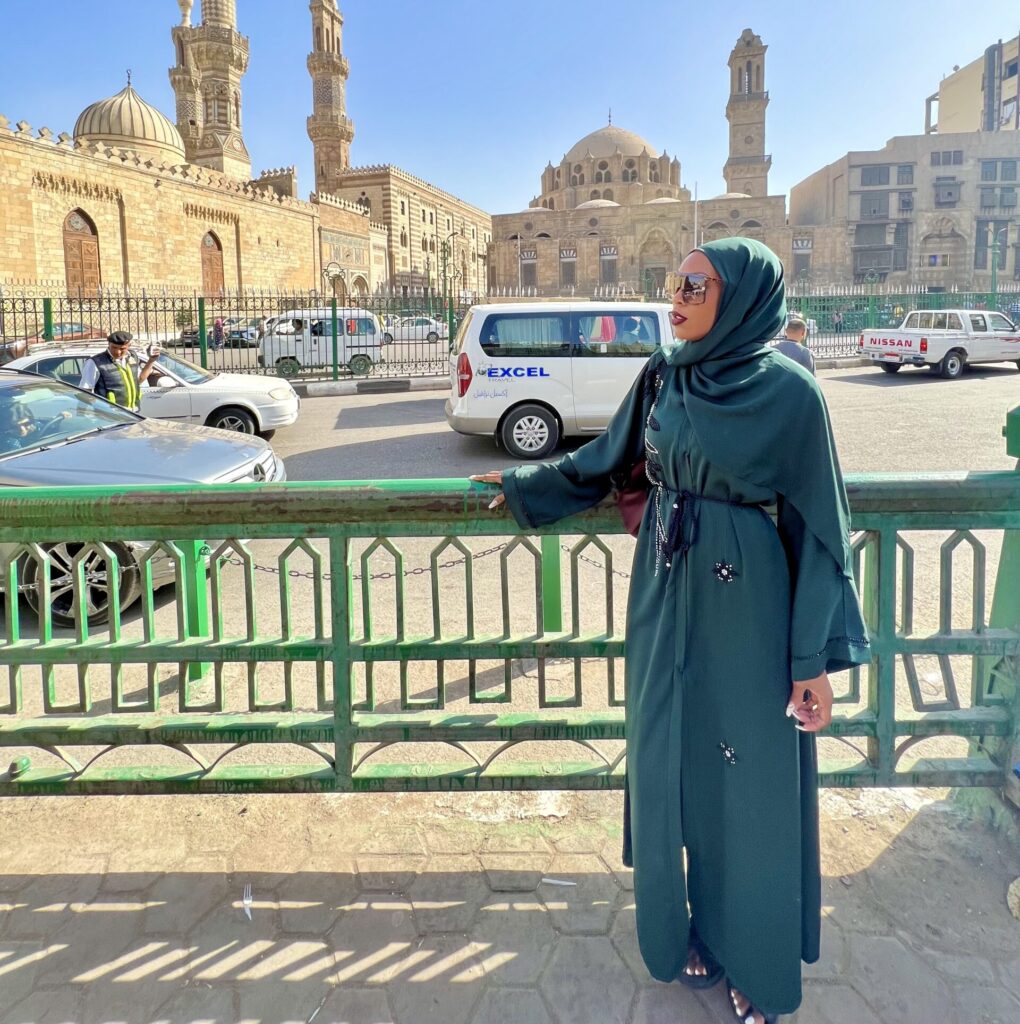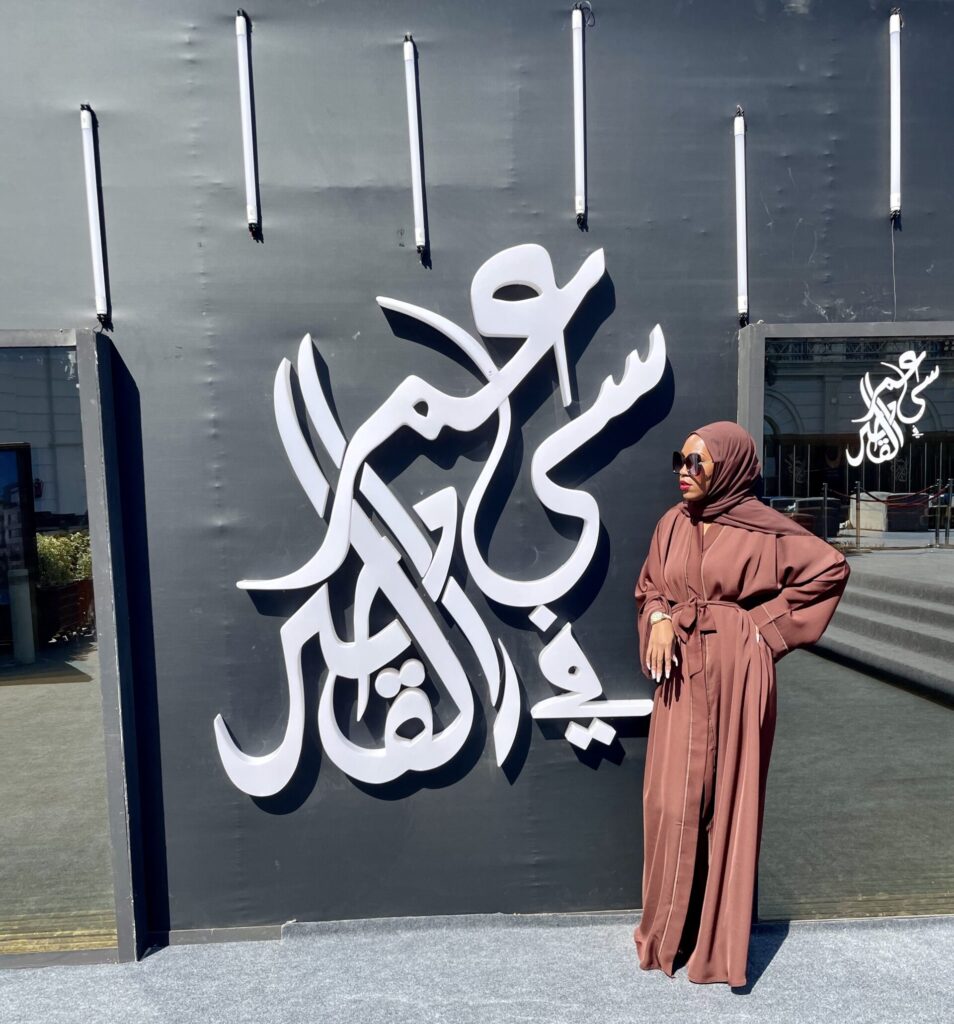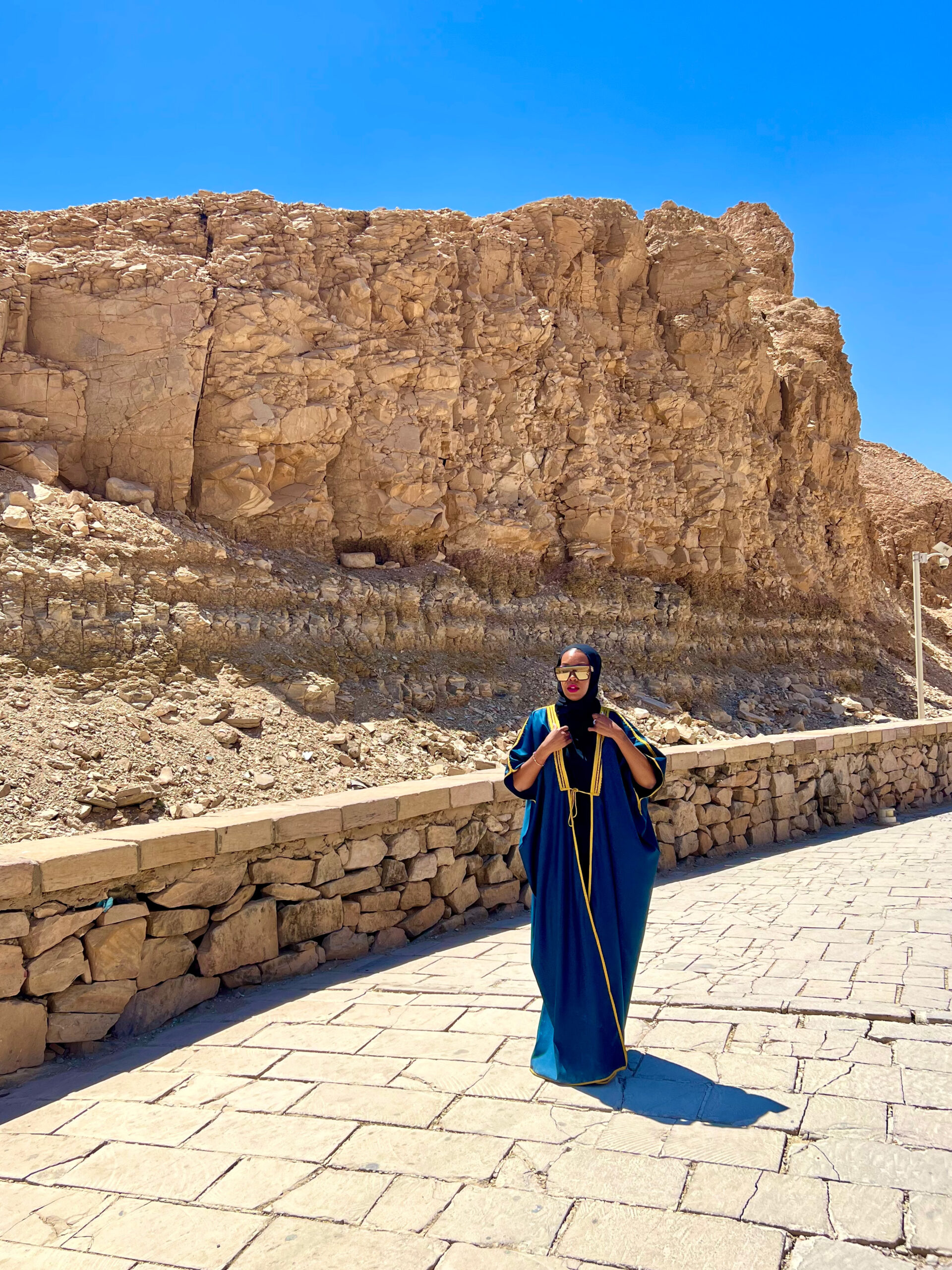I was born and raised Muslim. That’s something that people are often taken aback by because the history of what it is to be Black and Muslim in America is not widely known. My Islam is multigenerational, which makes it even more complex.
I learned from my father, as a child, about my enslaved ancestors that fought to keep their Islam by keeping the tradition of fasting. Imagine the brutality of being under the thumb of enslavement, hardly getting a decent meal, but still opting to give away whatever scraps were offered to ensure your faith stayed intact.
Now imagine being me, carrying the name of “faith” and walking in the path of my ancestors during this time of year, specifically during Ramadan, the ninth month on the Islamic lunar calendar and a very holy month for Muslims. It is obligatory for everyone to fast unless they are sick, traveling across a certain distance, menstruating, or pregnant. It is a deeply personal and spiritual time for Muslims around the world, during which we are praying more, reading more, giving more charity, and decreasing our indulgence in every day consumption of not just food and water but also what we watch, listen, and respond to. For me, Ramadan is about reconnecting with my personal connection to my faith, strengthening my relationship with Allah, and seeking inner peace and enlightenment.
However, as a Black Muslim woman, I am acutely aware of the intersecting layers of identity that shape my experience. Ramadan wasn’t something that I initially embraced, growing up in a predominantly non-Muslim society. No one ever understood it. I always felt at odds with being a Black person with an Arabic name and a faith that was so beautiful, because people were always demonizing and othering it. As an adolescent, I just wanted to be accepted. People knew I was Muslim, but I wasn’t shouting it from the rooftops because it came with never-ending questions that felt more like interrogation than anything else.

It wasn’t until my 20s that I recognized my Islam could be just as visible and as prevalent as my Blackness. I wanted the world to identify me clearly as Black, as Muslim, and as a woman. This is something I still struggle with—people tend to belittle the long history that Black people have held onto Islam. Feeling othered within my own faith and othered within my own culture has made Islam and Ramadan a very individualized journey for me.
It’s taken some time, but I’ve learned to honor Ramadan in a way that feels organic to myself. This often comes in the form of heavily praying for my ancestors and making space to acknowledge my paternal grandparents who had to go to court so that my family could keep our last name—because it was not a traditional “Negro” name.
The current global climate adds a layer of complexity to the Ramadan experience. In light of widespread humanitarian crises, including famine and starvation in various parts of the world, the joy of Ramadan is tinged with sadness and a sense of urgency. As a Black Muslim woman, I am keenly aware of the disproportionate impact of these crises on communities of color, who often bear the brunt of systemic injustices and inequalities. And as a result, I lend my voice and social media platforms to raise awareness and funds. I also actively create space for others to lean on me online. On my TikTok, at the start of Ramandan, I began going live around 8 p.m. to talk to newly converted people of faith who have no community and a lot of questions. I also created a “Ramadan Ready” book list on Amazon as a starting place for those who need credible literature to navigate the part of Ramadan that requires us to seek knowledge in these 30 days.

I also prioritize self-care as best as possible during Ramadan. I nap and strongly believe in taking an intentional hour or more to rest my body especially with working, being a mother, trying to keep up with reading and praying while fasting. Hydration is also huge for me during this time because it’s imperative to drink as much water as possible prior to and at the end of fasting for over 13 hours. Being a Black woman in the world, rest is often the last thing on my checklist, so I allow Ramadan to give me the grace to slow down and be intentional about what and even who I engage and interact with.
Despite the challenges and complexities that accompany Ramadan, I approach this sacred month with a sense of hope and resilience. I draw strength from my faith and my community and find solace in knowing I’m honoring the holy month in a way that feels true to myself.







